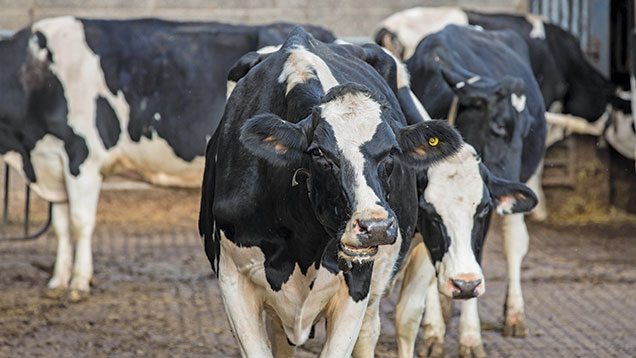Ask the Vet: How farmers can help stop the spread of rotavirus
 Library picture © Tim Scrivener
Library picture © Tim Scrivener Ask the Vet invites readers to submit questions about problems they are experiencing on their farms. In this edition Jon Parsons, a Westpoint vet, addresses the issue of rotavirus gastroenteritis being spread to cattle.
My son came down with rotavirus gastroenteritis, and he works on the family dairy farm. Can rotavirus be transmitted to cattle?
Rotavirus is a virus that affects many different species including humans and cattle, but there are many different types of rotavirus and not all affect every species.
In the UK there is some evidence of the same rotavirus affecting both cattle and humans, but infection is more likely to be transmitted from cattle to humans rather than vice versa, due to the route of transmission.
See also: e-learning academy on preventing calf scours
Rotaviruses are transmitted oro-faecally, via the ingestion of faeces or contaminated items.
It would be unlikely for calves to be able to ingest anything contaminated by your son’s faeces.
Rotaviruses also only tend to affect young animals, so transmission to older healthy cattle would be very unlikely.
More commonly other bacteria, viruses or protozoa spread from calves, lambs and pigs to humans.
Biosecurity is really important so it is vital to wash hands and clothing after dealing with animals – or the classic for vets – chewing your pen or holding a needle cap in your mouth.
“It is really important that clothes and boots are washed thoroughly after handling animals and when coming into contact with individuals with weaker immune systems.”
Jon Parsons, vet
Sick animals should be isolated and extra precautions taken, particularly around people with weaker immune systems such as the young, elderly or pregnant women.
Faecal contamination can be carried by our clothing or implements, which is particularly important to consider when working on the farm.
Clothes and boots should be washed thoroughly after handling animals, and when coming into contact with individuals with weaker immune systems. It is always best to shower and change beforehand.
Advice given is based on the information provided and does not necessarily apply to situations where other factors exist. If the advice required relates to a specific animal or disease problem the reader should contact their own vet or adviser with appropriate knowledge of the particular circumstances.
If you have got a question for the Westpoint Vet team send your question to fwlivestock@rbi.co.uk.

